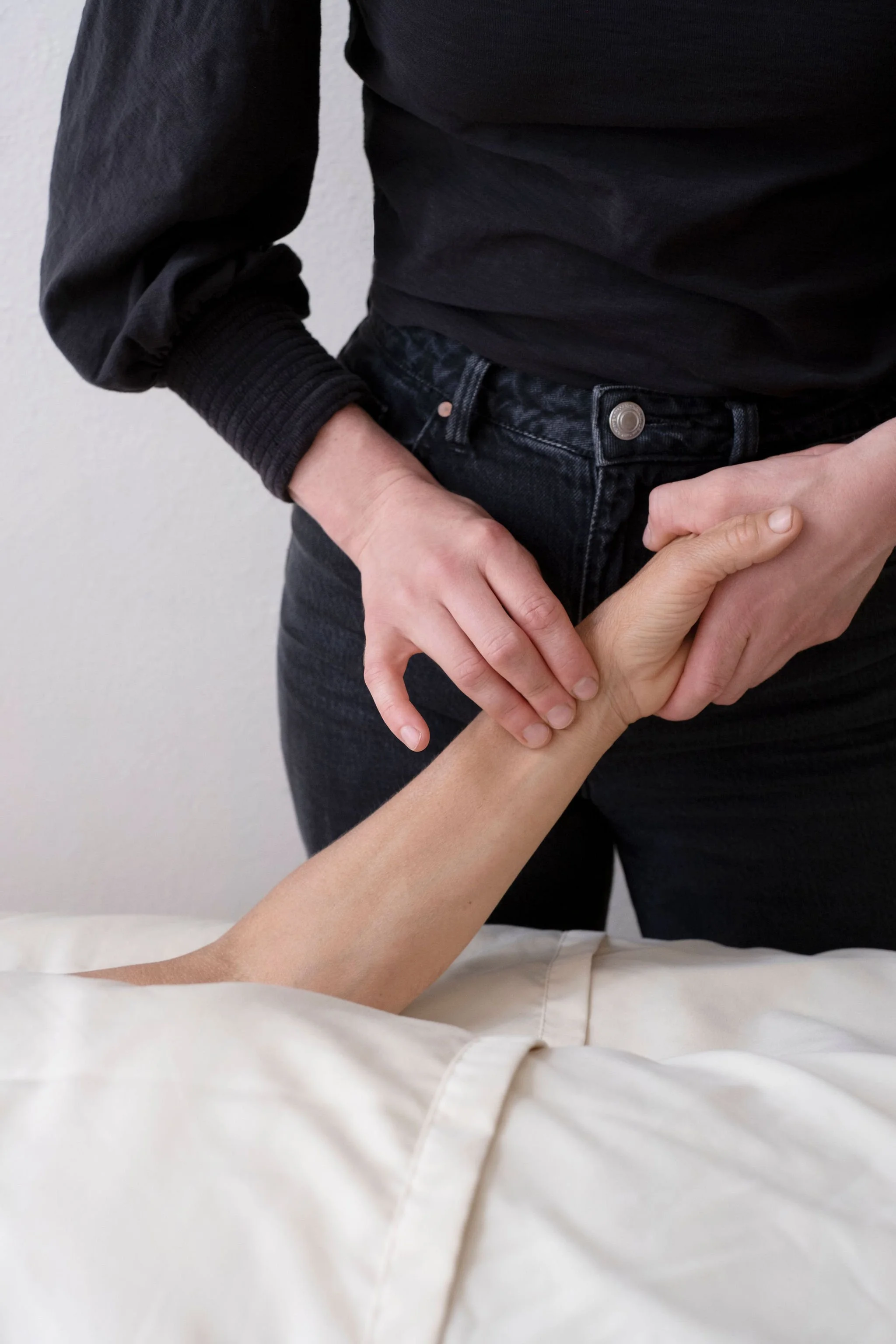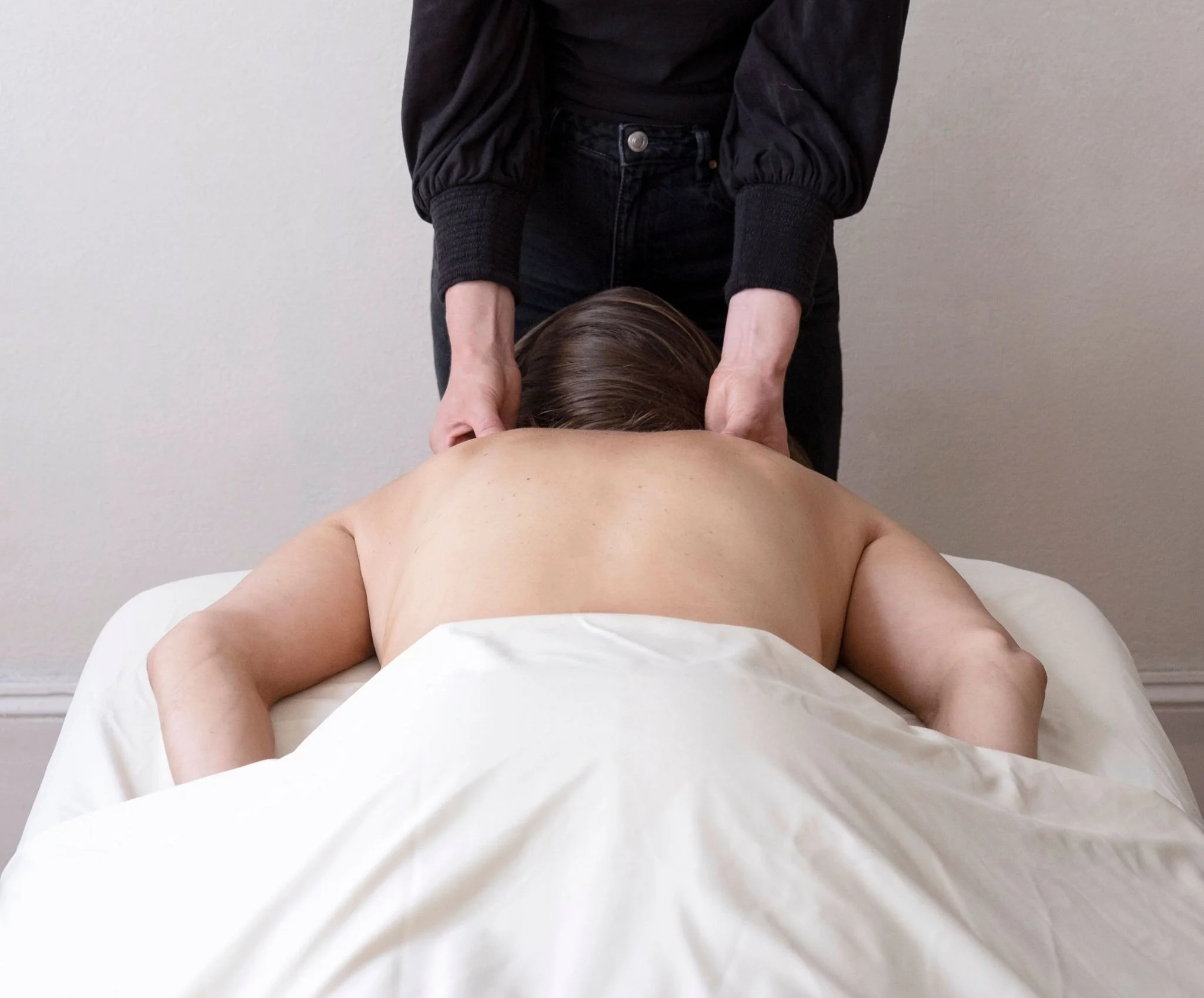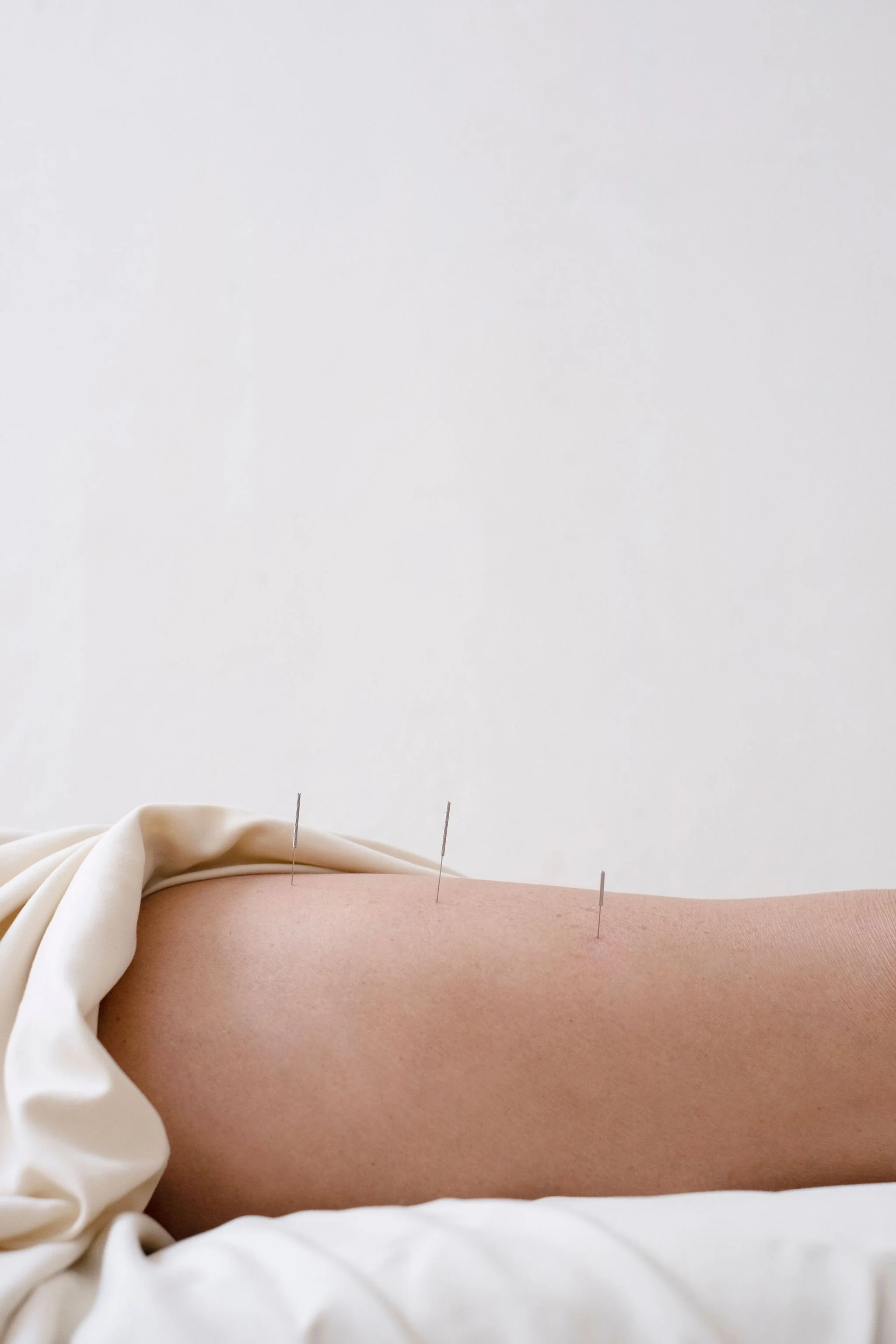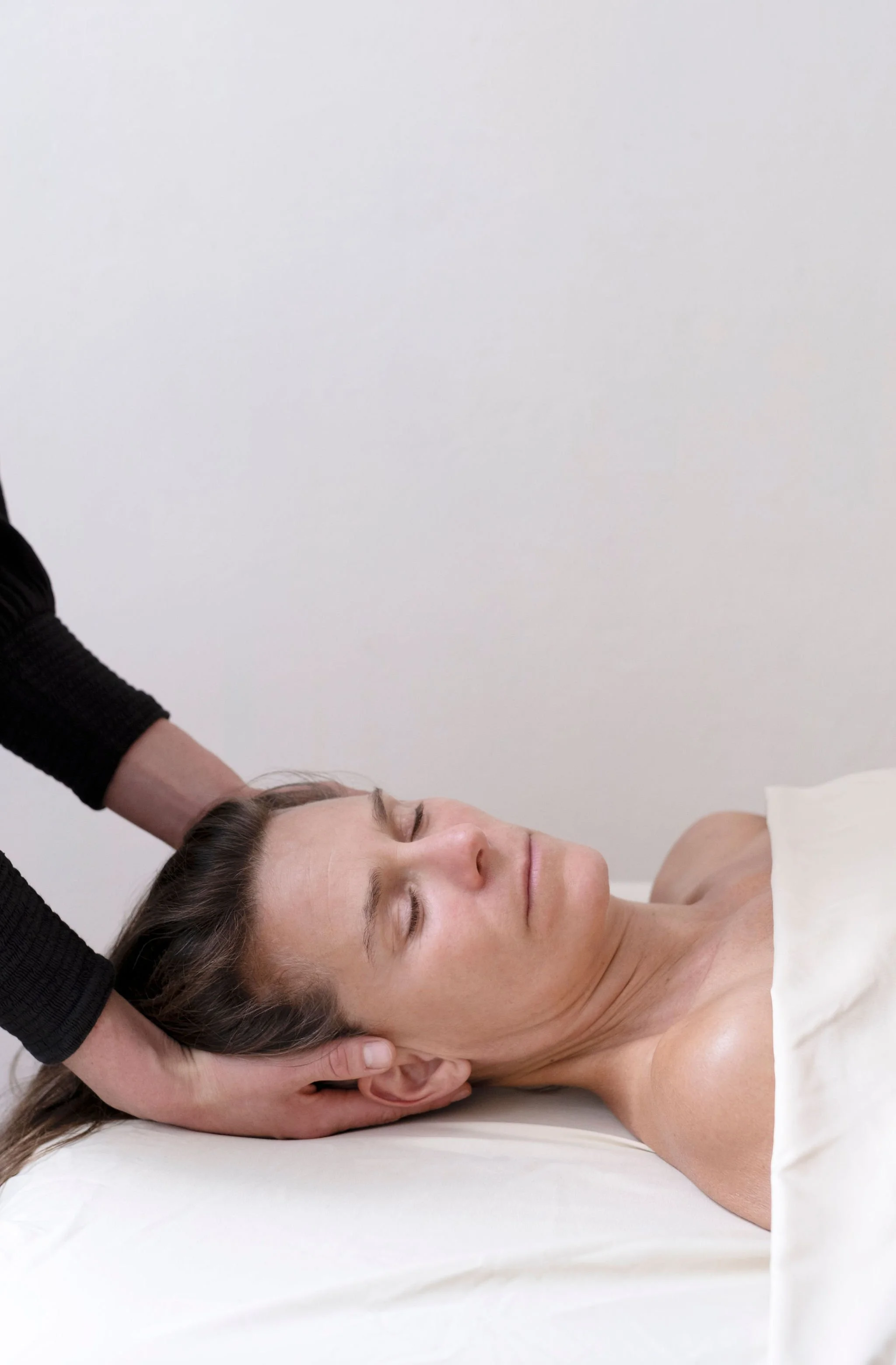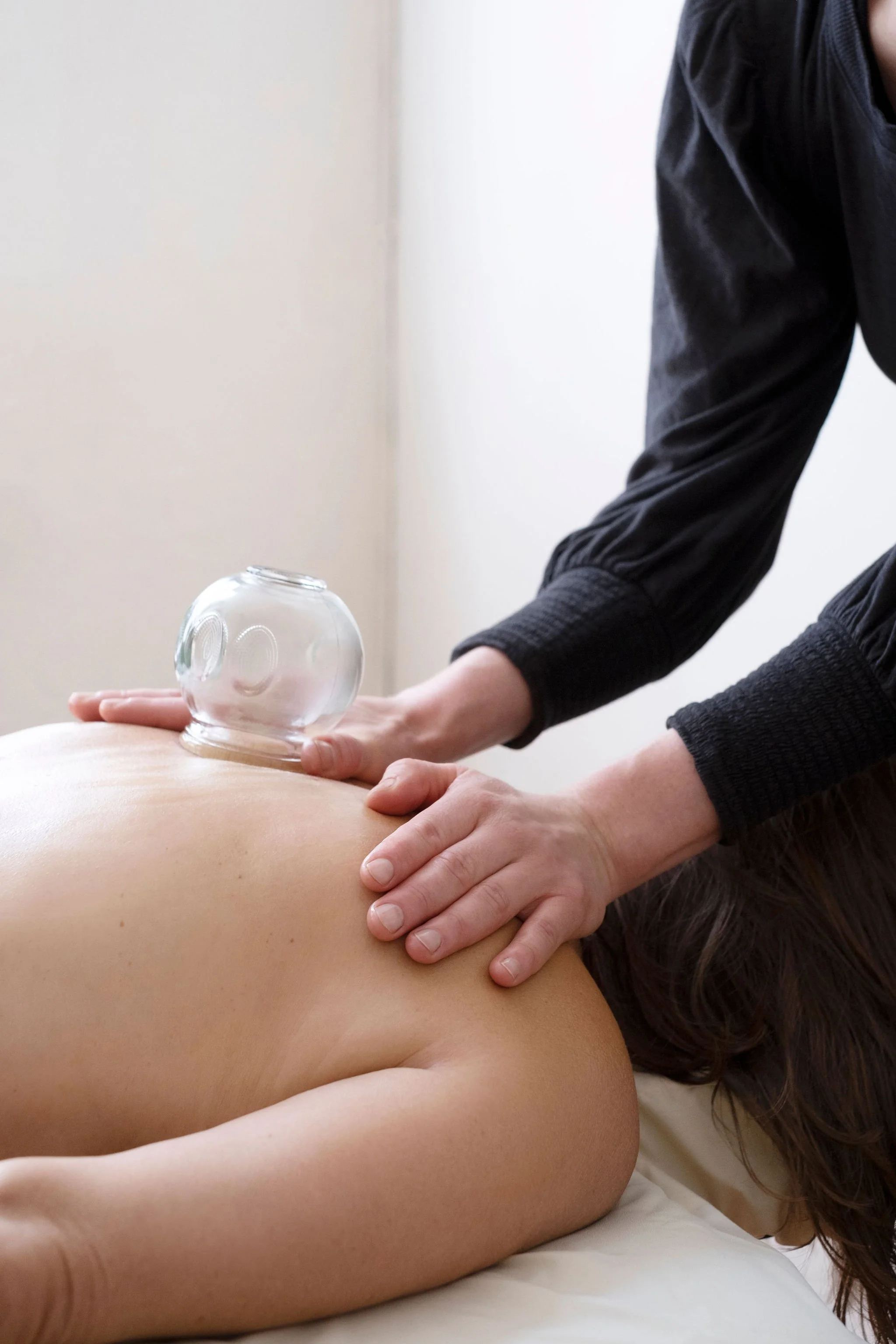The Beginners Guide To Acupuncture & Bodywork
Maybe your friend has praised acupuncture for curing migraines or menstrual pain. Or you’ve heard professional athletes use acupuncture to recover from sports injuries. Whatever your reason is for being curious about acupuncture, reading this will give you a sense of what to expect and how to get started.
What To Expect
You’re considering acupuncture. Now what? What will my first acupuncture treatment be like? Does acupuncture hurt? How many acupuncture appointments will I need?
Like other health modalities, acupuncture is practiced differently depending on who you see and how their clinical space is set up. The following summarizes what to expect during your acupuncture treatment with me.
I aim to create a tangible shift toward your health goals with each treatment. This means your treatment is 100% individualized to you. Acupuncture techniques are often accompanied by other forms of bodywork, such as Tui You (pushing oil massage), Daoist Zangfu Acupressure (abdominal massage), Cupping (tissue decompression), Moxibustion (applying warmth), Traction (creating space in the joints and lengthening muscle fibers), and Patting (rhythmical percussion to create physical and chemical change in the body). More often than not, I incorporate other techniques with acupuncture, taking a multifaceted approach to prevention and treatment.
Your First Treatment
I will ask you a comprehensive set of questions during your first treatment. For example, you may come in with a chief complaint of eczema. I will ask questions directly related to the eczema and seemingly unrelated questions about digestion, sleep, and other aspects of your lifestyle. Chinese medicine views the body as a whole rather than isolated symptoms of an injury or illness. Treatment strategies are holistic. As the eczema improves, so will other symptoms you may or may not have noticed.
The first part of your initial consultation will consist of a comprehensive dialogue to evaluate your health history and current health goals. Tongue observation and pulse examination are also used as diagnostic tools. Depending on your chief complaint, your practitioner may also palpate areas of concern. Palpating is diagnostic touch. It’s one of the best tools we have to assess what’s going on beneath the surface. Palpation can be done over clothes or directly on the skin. For example, palpating the abdomen for digestive issues or palpating the shoulder for range of motion issues.
The rest of your appointment will be focused on introducing you to acupuncture and bodywork. We may also prescribe an individualized herbal formula depending on your unique health goals. Many of our patients take herbs. You can learn more about herbal medicine here.
During treatment, you will most likely be lying face-up, face-down, or side-lying on a massage table. I will use a sheet or towel to drape and keep you warm during treatment. It’s helpful to wear comfortable, loose-fitting clothes.
Your acupuncture treatment's exact sequence and approach will depend on your primary health concerns. I often begin with palpation and massage to better understand the underlying tissue. Palpating helps diagnose primary and/or secondary ‘ashi’ (pronounced ahh-shir) points. ‘Ashi’ literally means ‘oh yes.’ These are tender spots, usually areas of tightness where muscle fibers are knotted.
You may notice unexpected sore or tender spots to the touch during palpation. This is normal! One of the amazing gifts of receiving bodywork is learning where our bodies need attention and helping the body to acknowledge these areas.
Following the initial consultation and assessment, I will combine acupuncture and bodywork to address your health concerns.
Acupuncture
Acupuncture is the insertion of thin needles through the skin at anatomically specific points. Needles used for Acupuncture are extremely thin, solid, and single-use. Acupuncture points can be located on the extremities, abdomen, chest, back, neck, or head. The condition being addressed determines the location and number of acupuncture points.
Needle insertions are quick and with little sensation, although sometimes there may be a pinch. Once the acupuncture needle is inserted, you may experience a variety of sensations locally around the point or distally away from the point. I will dialogue with you about possible sensations.
Depending on the techniques I use, you may experience local sensations of fullness, heaviness, and achiness, or distal sensations of spreading or sparkles up or down a pathway. Fasciculations (muscle twitches) are also common, though more specific to orthopedic or sports medicine acupuncture. You may also experience a sense of gathering warmth, dispersing coolness, or a sense of calm. Throughout your acupuncture experience, I will answer questions and provide guidance.
Bodywork
Bodywork is a general term for hand techniques that involve therapeutically touching the body. It is a foundational aspect of Chinese medicine, used for thousands of years to prevent and treat disease.
Many bodywork techniques are used as stand-alone modalities. For example, Daoist Zangfu Acupressure (DZA) is a powerful, ancient healing method used to regulate and treat imbalances in the abdominal and pelvic cavities. DZA is a fully clothed abdominal massage that stimulates and supports proper digestive and pelvic function.
Tui You, or pushing oil, is a therapeutic oil massage that courses blood through the muscles and promotes healthy circulation. This technique can be practiced as its own modality, though I often use Tui You in concert with dry needling or sports acupuncture.
In addition to these techniques, Cupping (tissue decompression), Moxibustion (applying warmth), and Traction (creating space in the joints and lengthening muscle fibers) are also frequently practiced alongside acupuncture.
Posttreatment
Once acupuncture and bodywork are complete, allow yourself a few minutes to relax on the table. Depending on your health goals, I may suggest follow-up treatments to maintain positive progress with treatment. Follow-up treatments enable us to monitor your progress and adjust treatment strategies accordingly.
Along with follow-up appointments, I may also suggest some lifestyle changes you can make to reach and sustain your health goals.
Still have questions about what to expect during your first treatment? Feel free to email me at hannah@hannahdietz.com or schedule a Free 15 Minute Phone Consultation.
Hannah Dietz is a Doctor of Acupuncture and Chinese Medicine practicing in Asheville, NC.

